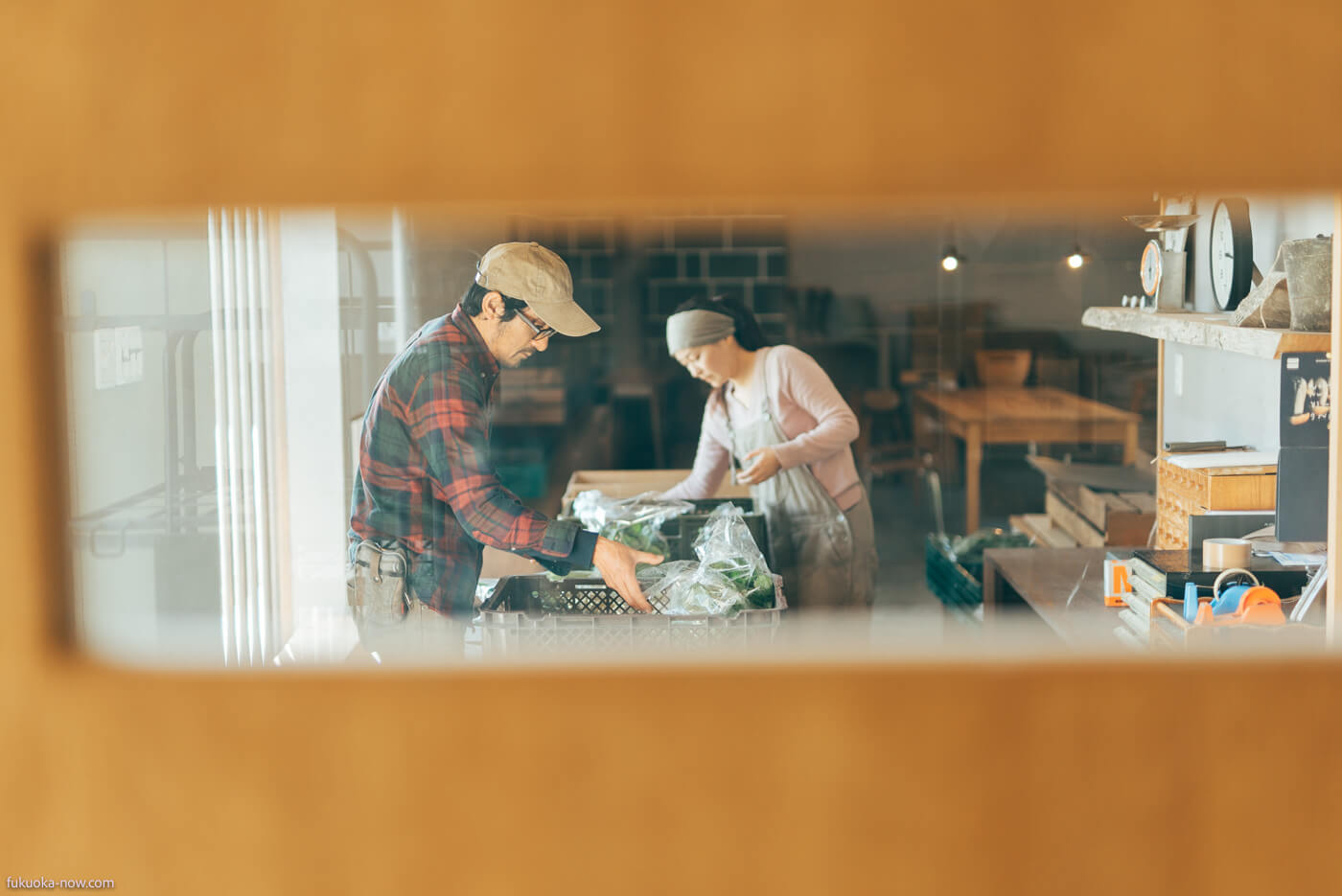Itoshima couple’s inspire a new generation of organic farming
Itoshima Now introduces the people, stories, and activities belonging to Itoshima’s sustainable culture. The “People” section focuses on residents and others deeply involved in the area, and for our first installment, we interviewed Makoto and Waka Yamamoto of Toraki Vegetables.
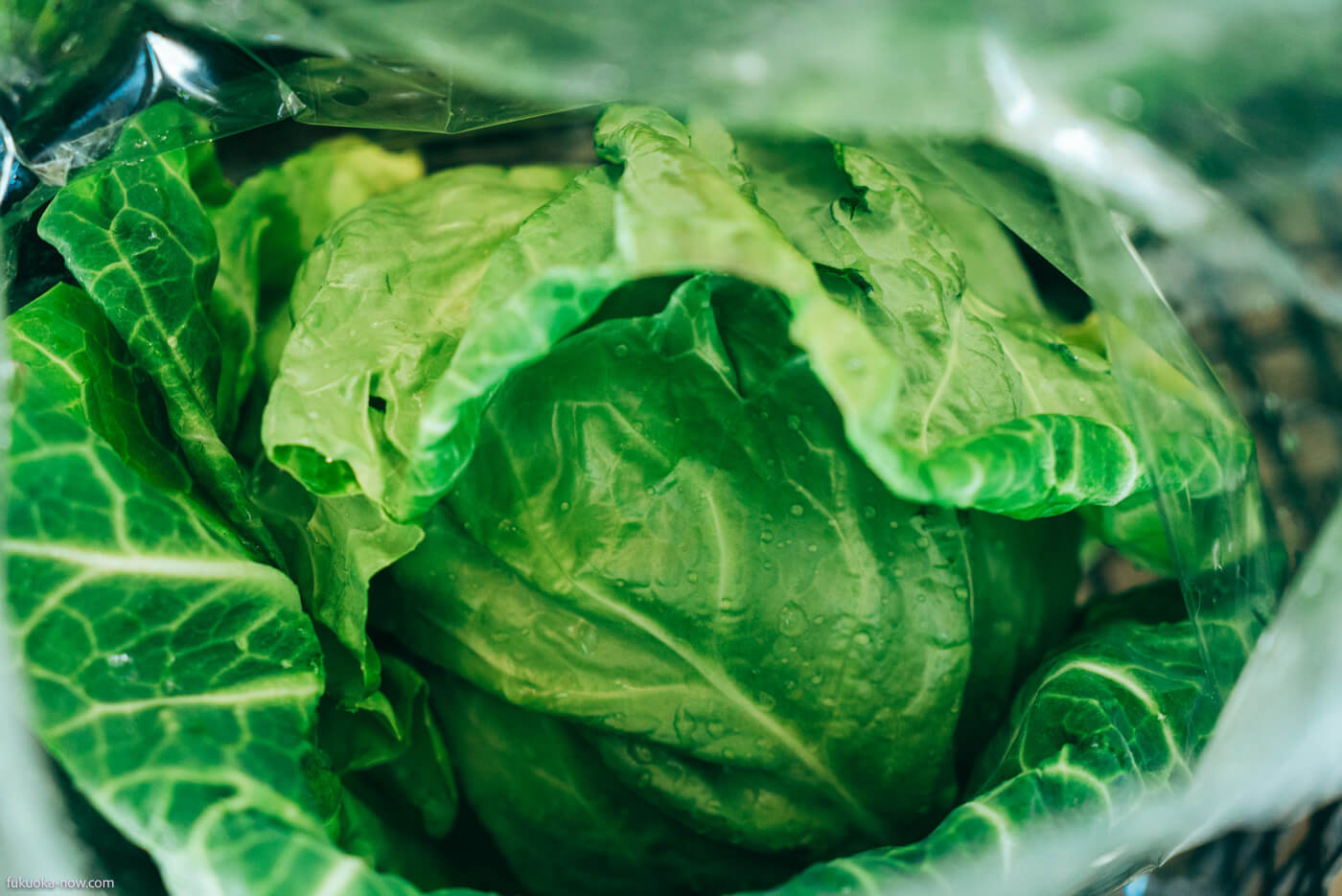
Colorful, fresh vegetables and an eye-catching logo. Toraki, in Itoshima, is located in a farmhouse that stands out from the crowd with its stylish design and messaging. But anyone who has ever tasted Toraki’s vegetables will tell you that style is definitely not the focus. It’s the full-flavor veggies, and the passion of the producers who grew them are what have attracted fans from all over Japan. We interviewed Makoto Yamamoto, the head of the farm, and Waka Yamamoto, who handles everything else, to learn more about how they got to where they are today and the core values they stand by.
You both started farming in 2014. What was your motivation?
W: I was born in Itoshima, and we started living here after we got married. My family had fields and my grandmother always had a vegetable garden, but as she got older it got harder for her to tend. One day, my grandmother asked us why we weren’t tending the fields, so that’s when we started farming.
M: Before that, I was an employee of a landscaping company. I think I was in my late 30s at the time. It was the first time for us to grow vegetables, but we decided to do it without using any pesticides, so we started by just growing what we could eat.
W: I gave some of the vegetables to my friends and they were very happy to receive them. That’s what got Makoto hooked.
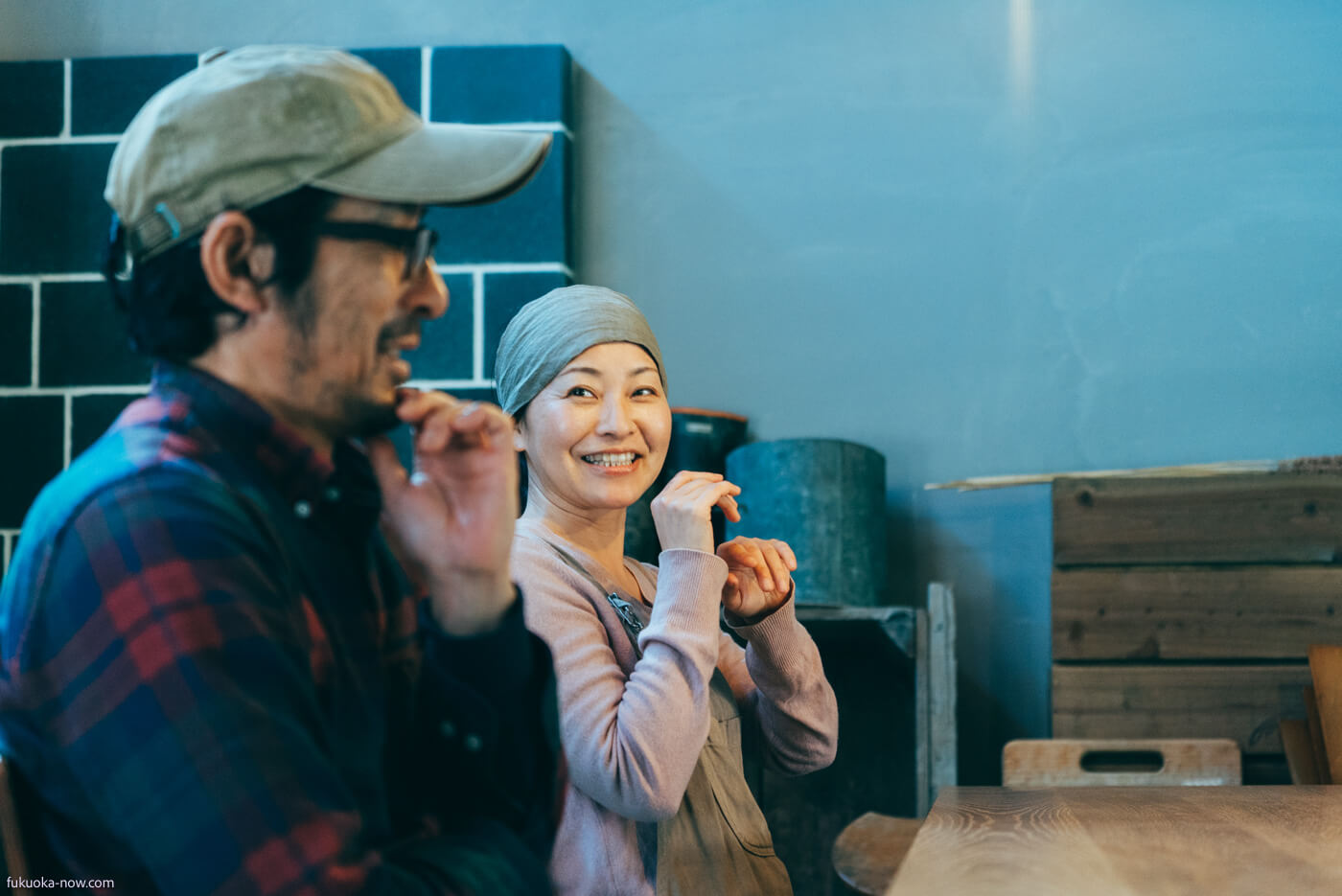
M: I definitely got hooked. (laughs) I think I have always had an artisan’s mindset. Once you start doing something, you just tune everything else out. In retrospect, I may have been looking for something new to get into at the time. If the average lifespan is 80 years, then it was right around the midway point for me. I questioned whether I could really continue my current lifestyle. I was having mixed feelings about my job at the time, too. I was in charge of exteriors and gardens, and my role was to listen to the customer’s requests, design them, and then give instructions to the gardeners and the plaster workers. But I was dissatisfied because I was not making things with my own hands. I was searching for something new, and wondering if there was a job where I could create something entirely on my own that would please customers. All of these things came together, and one day after I turned 40, I told my family I was quitting my job to become a full-time farmer.
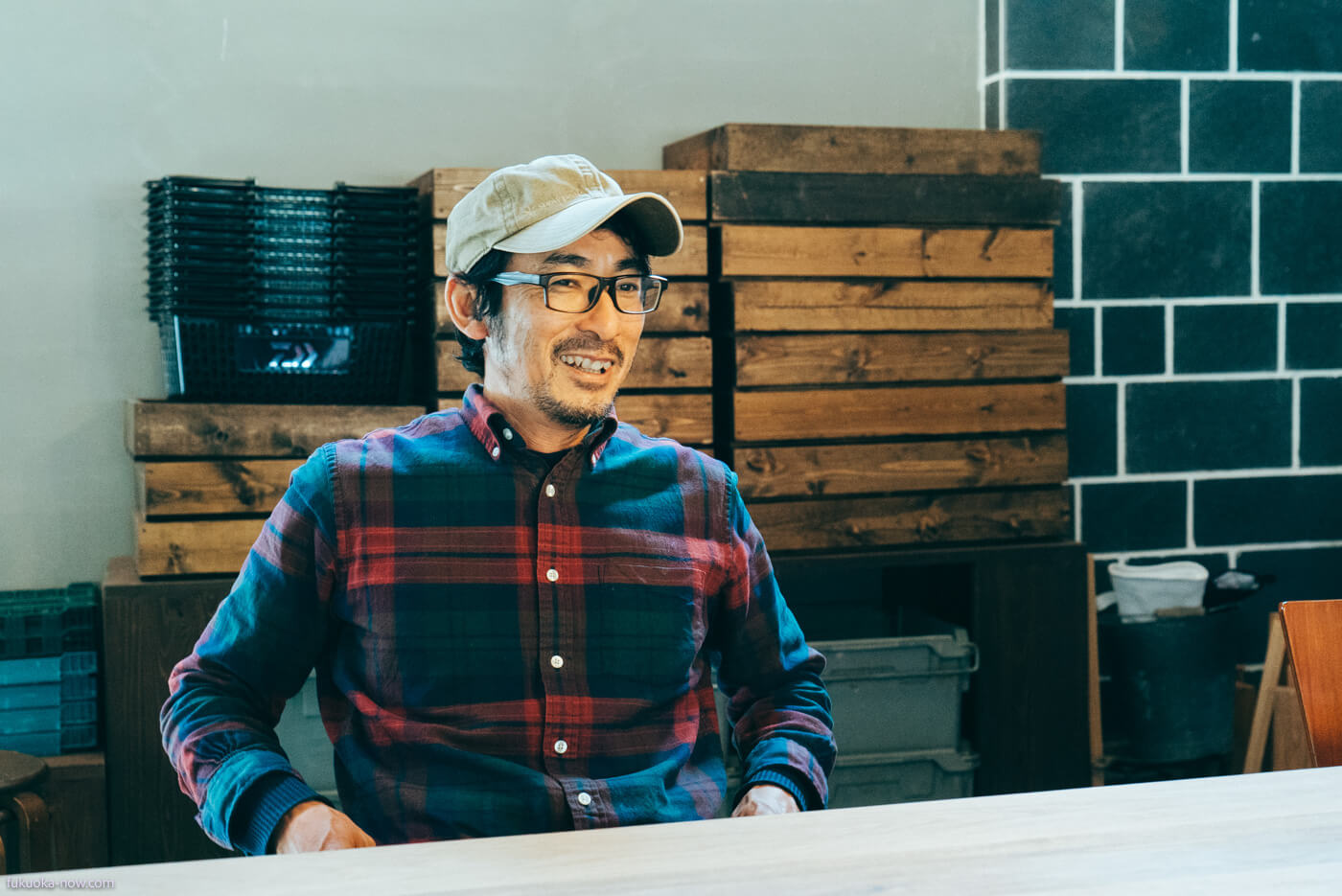
This was your first time farming. How was it at the beginning?
W: As I remember, it was so sudden that my mind went blank. Our children were still in the fourth and first grades. I worked in a department store before giving birth, but was a full-time housewife after I had the children. Immediately after Makoto left his job, our household finances decreased suddenly and we were feeling down as well. But there was a lot of farmland, and I enjoyed sales, so I started to get somewhat of an idea of what I wanted to do. We decided on a logo and started to get an idea of how we should engage in publicity. Since I was a cosmetics salesperson, I had studied color combinations, so I felt I could get creative in presenting the vegetables. We decided to completely divide the duties between us, and we have been doing that ever since.
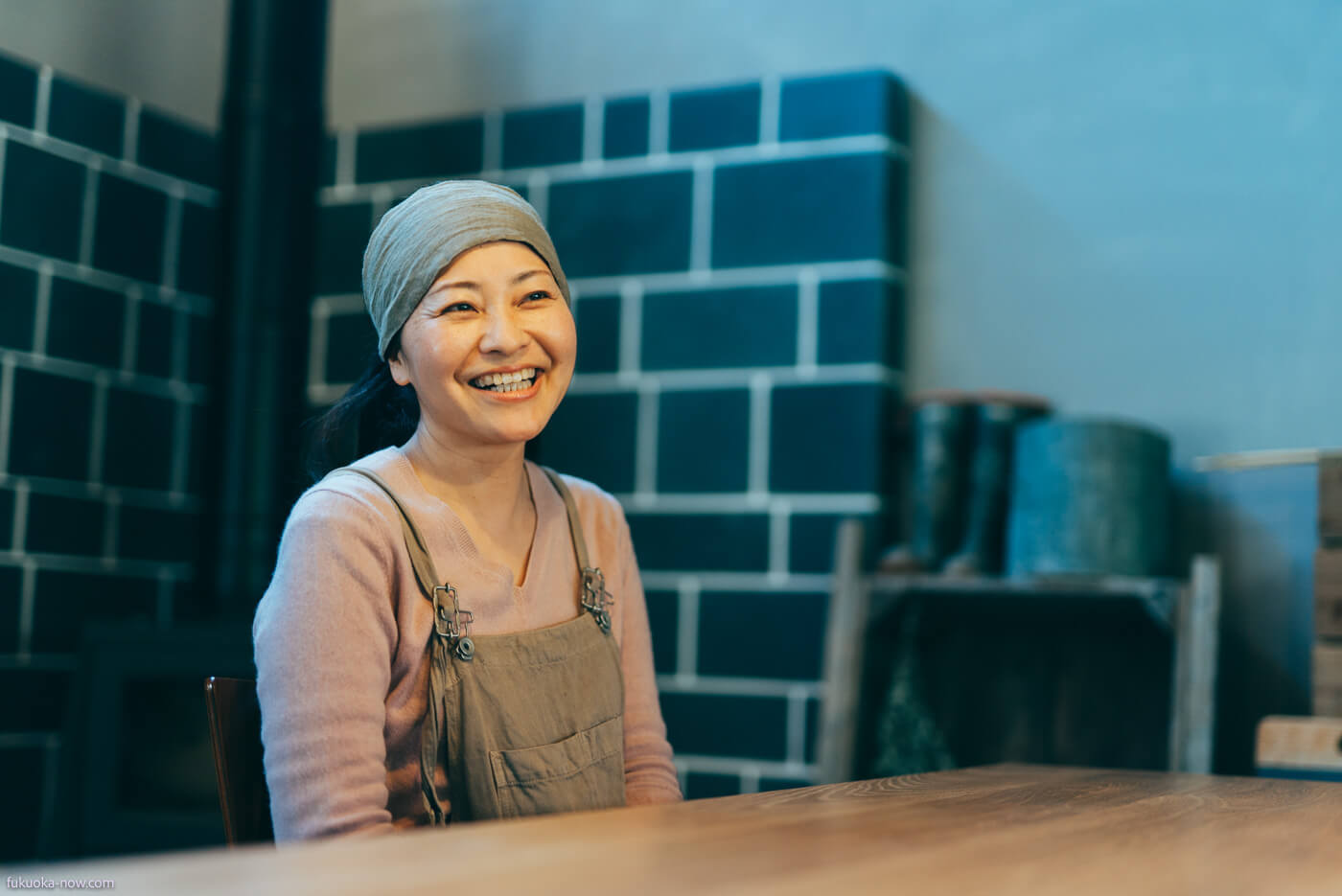
M: I was over 40 and in an occupation with no guarantees, so I just had to do it. But thankfully, I was able to connect with customers right away.
W: Indeed. It was also fate that a farm-direct vegetable stand opened at the nearby Himeshima ferry terminal shortly after we started farming. The ward mayor asked us if we wanted to sell our vegetables there, and in no time at all, I was selling our produce at the stand. When I think about it, we have been truly blessed with good fortune. In fact, the trade name Toraki is the name of my great-grandfather from whom we inherited the field. I like to think he is happy that people call us Toraki-san and is cheering me on. (laughs)
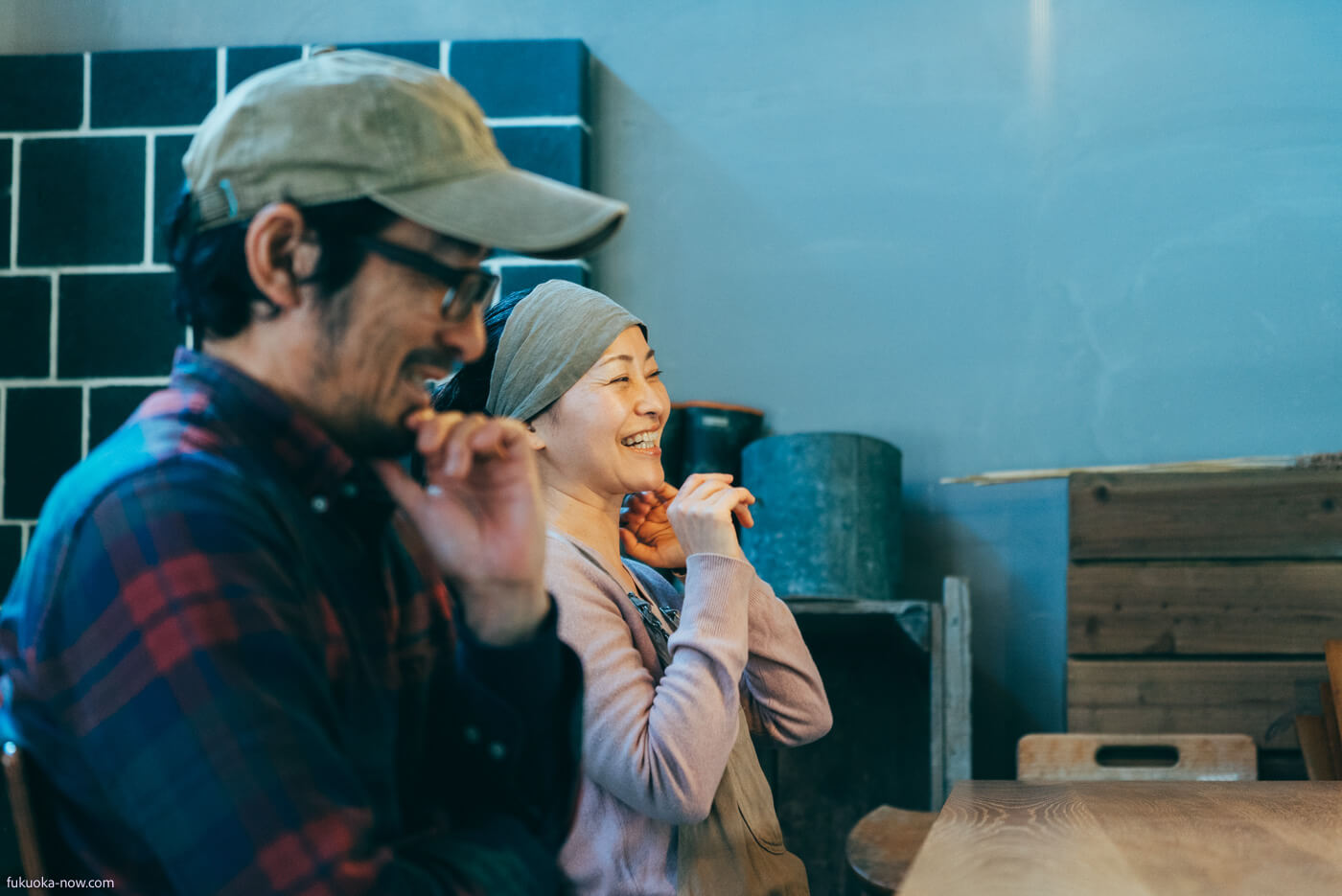
Did you run into any obstacles?
M: I feel like there were some tough times, but I was totally absorbed in what I was doing, so I don’t really remember.
W: Yes. I have a strong desire to make sure we sell out, but in the beginning, some of our vegetables at the farm-direct stand remained unsold. That really bothered me. When there were leftover vegetables, I would approach restaurants on the low-down. I told them I’d give them a great deal. One time, an acquaintance let me sell vegetables under the eaves of their shop. I don’t think I ever told Makoto about this.
M: I didn’t know that.
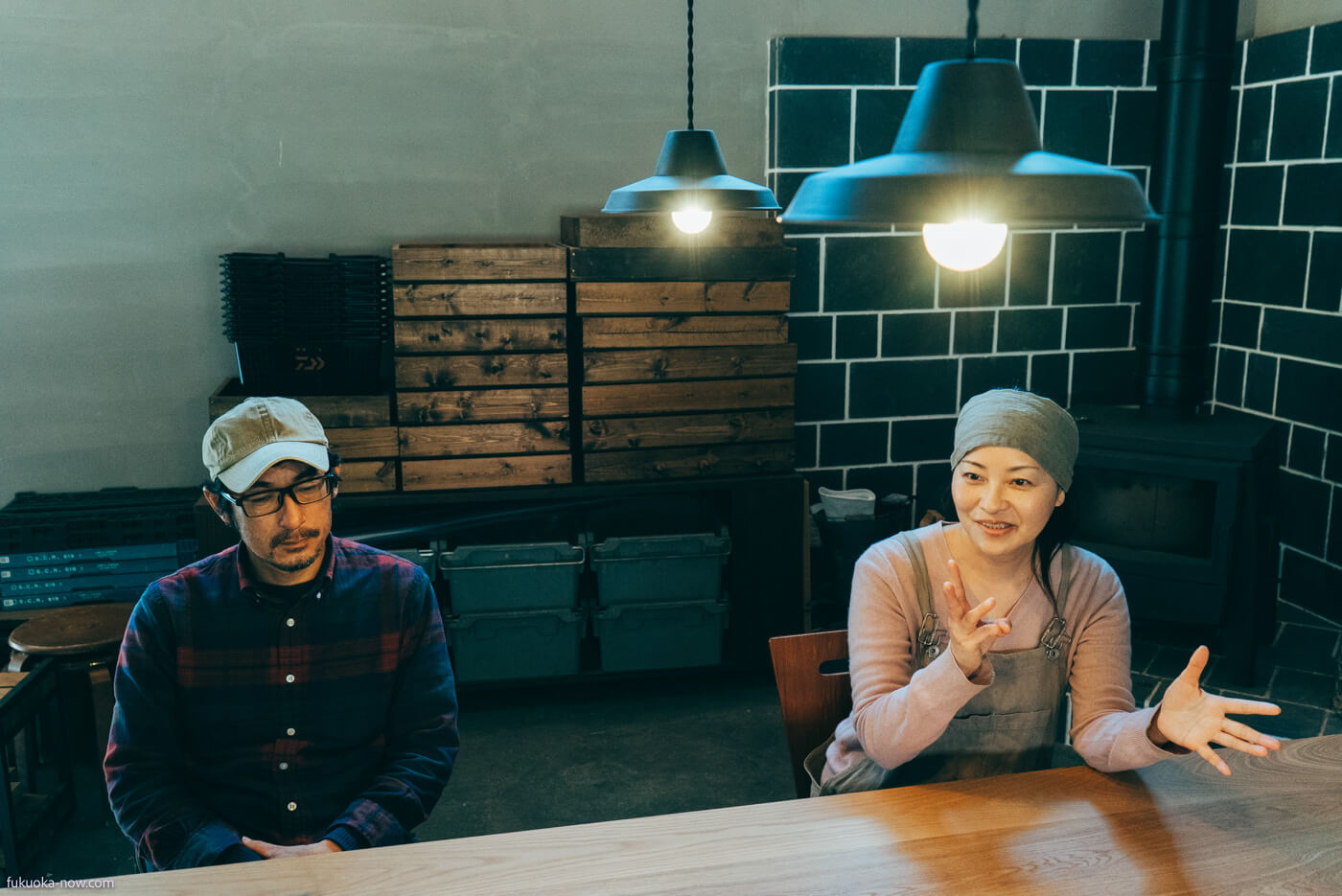
W: I was desperate. I just wanted to say, “Sorry, sold out!” I had seen the whole process of how the vegetables were raised, so there was absolutely no way I was going to let them go unsold. I didn’t know this until after we started farming, but not all the seeds you plant end up growing. More than half of our vegetables are lost to typhoons, insects, and small animals, so the ones you see on the sales floor are those that survived. The vegetables that are usually displayed on shelves are the ones that were strong enough to survive severe conditions. I want to sell them all. I don’t want them to go to waste; I want people to enjoy them. That hasn’t changed.
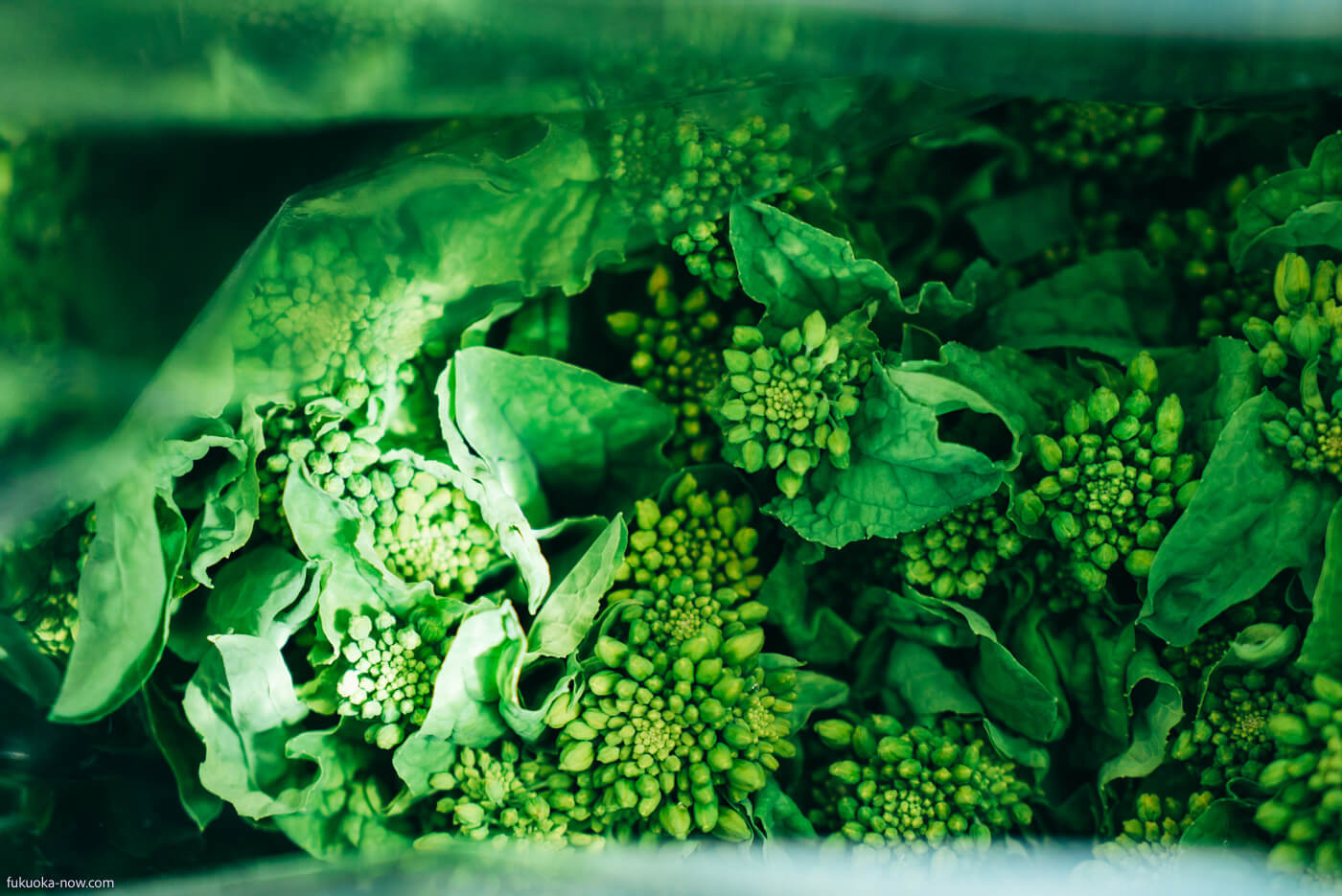
M: We have improved our sowing methods, so now we can sell about 80% of what we plant. We also devised a way to sell our vegetables so they don’t go to waste.
W: That’s right. If they are weirdly shaped, we sell them as busakawa (ugly but cute) vegetables. Only when we have a bumper crop do we offer these vegetables at special rates to our nearby clients because they can come and pick them up. They are very happy when this happens.
M: Some chefs say, “I’m making soup, so I don’t care if they’re misshapen.”
W: We can sell busakawa vegetables with peace of mind because these customers have been with us for a long time and have trust in us. We are really grateful for this.
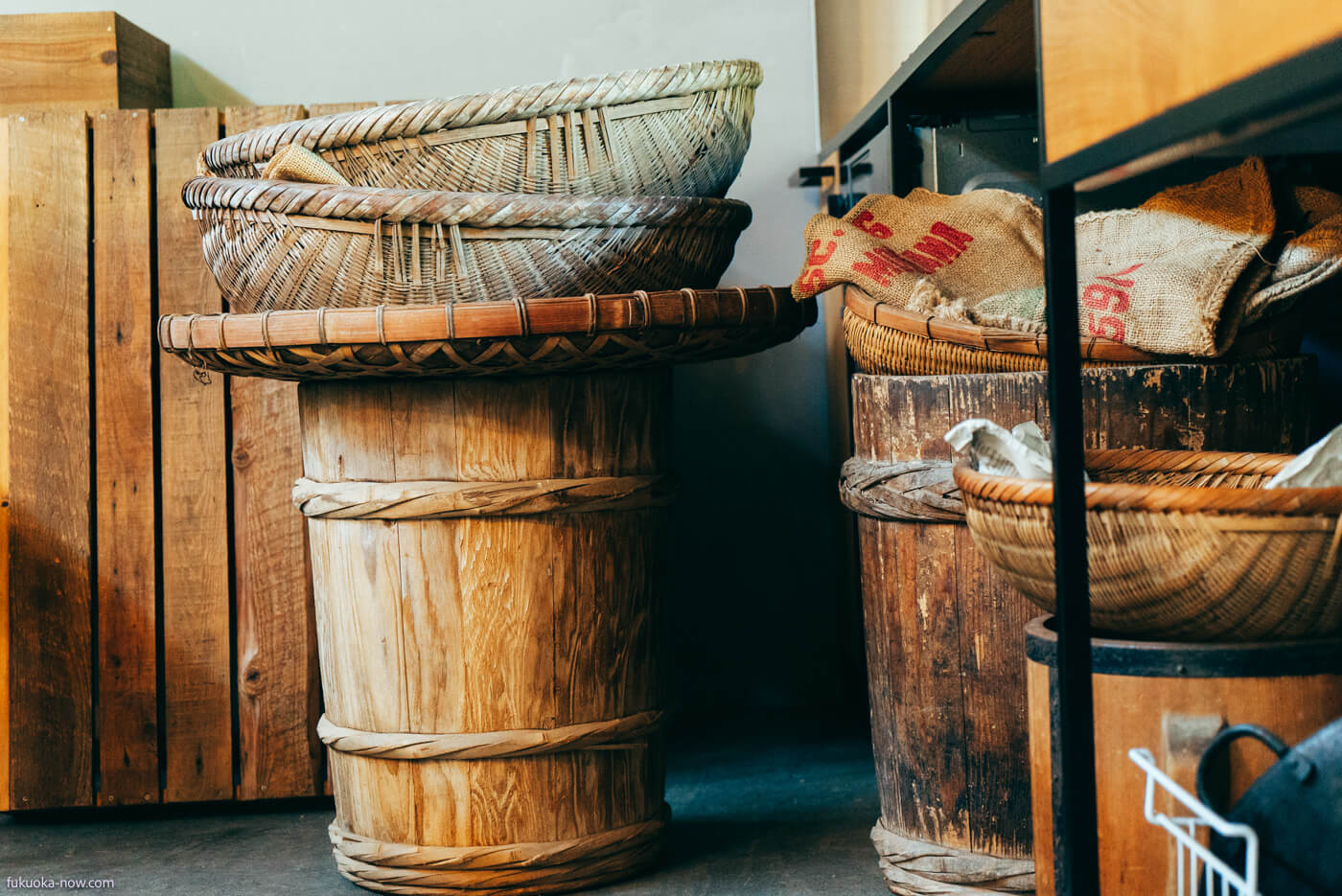
Were there any events that you didn’t anticipate when you started?
M: What surprised me was the number of food experts who visit the fields. They come from as far away as Tokyo and Osaka, and include chefs and bakers from famous restaurants. Sometimes they even work the farm with us. Switched-on people may be looking for authentic experiences and encounters in this online age. I think they want to understand and get first-hand experience with the “other side” of the ingredients they use.
W: We have a really long-lasting relationship with chefs who actually visit our farm, instead of only sending emails. I still think it important to have heart and develop relationships of trust. The other day, a group of chefs came to the farm in a swanky car, and when I asked them where they came from, it turned out they were the top chefs from a restaurant ranked number one in the world! It was truly an incredible encounter. But it all started with a word-of-mouth connection from one of our customers in Fukuoka. I think human connections like this are amazing. It fills me with gratitude and awe at the same time.
What are your dreams for the future?
W: My greatest desire is to have people truly savor vegetables that have been grown with tender loving care. So, we renovated our workshop and created Toraki Root, a place where you can interact with the producers. The word “root” expresses two things we want to achieve. We want to create a home base for Toraki vegetables, and we want to create a place where people can empathize and nurture relationships with each other through vegetables. It is my dream to organize a place where the people who produce the food and the people who eat it can leisurely interact with each other at their own pace. What’s more, we want to be a beacon of hope for anyone who is thinking about becoming a farmer in the future. Farming may conjure up images of people laboring away in the fields, but we have had a truly wonderful experience so far. I have shot videos for cookware manufacturers, created vegetable calendars and have participated in exhibitions run by culinary researchers. I would be happy if people come to realize just how many possibilities vegetables can open up for you. The world of agriculture has its tough side, but I want to be the kind of person who can pull a farmer who is about to give up on their dreams aside and say, “Come on. Let’s do this together.”
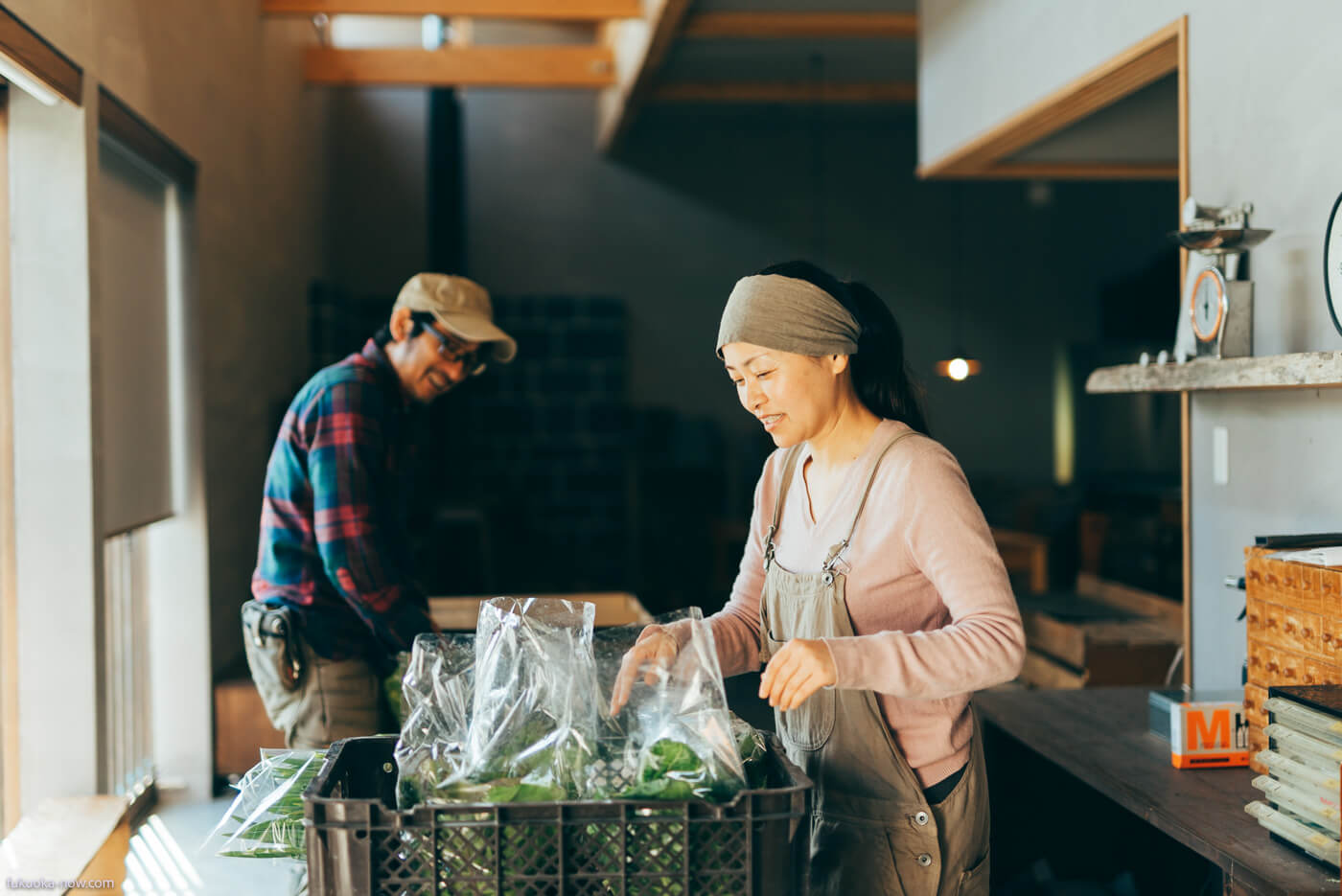
M: We are currently trying our hand at small-scale circular farming. We keep chickens and sell eggs, and we use Toraki vegetables as chicken feed. We compost the droppings and return them to the fields. I am truly satisfied with the way of life that I have been able to create little by little with my own hands. Even if we take it slowly, I would be happy to expand the possibilities of agriculture together with my trusted friends.
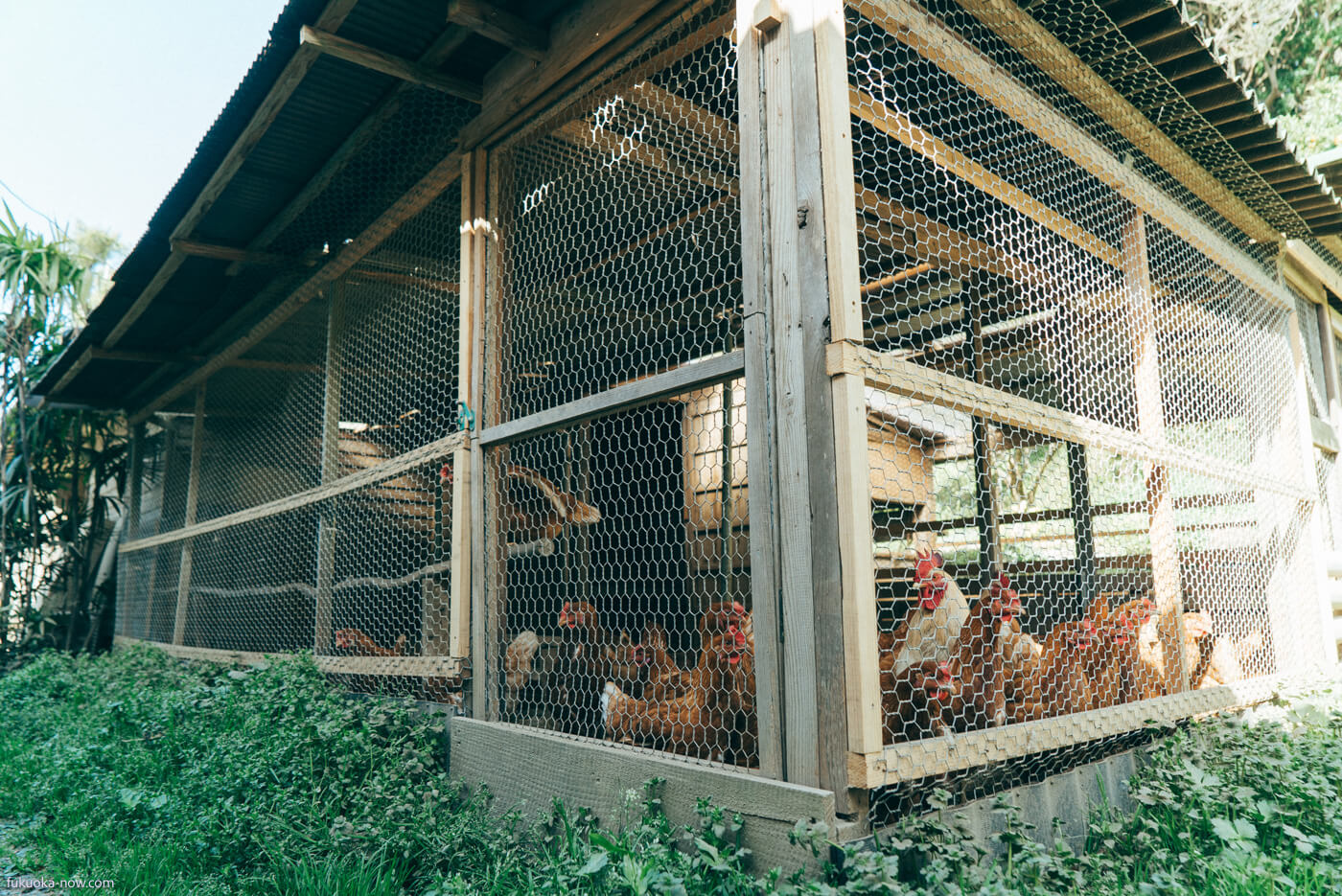
Writer’s Comment
On the day of the interview, I looked up from the field and saw a blue sky dotted with white clouds. I could hear the pleasant rustling of a nearby bamboo grove. As I was listening carefully, I remembered something that Waka told me: “I feel like we are finally a couple now that we have started farming.” For years, Makoto and Waka have been working toward the same goal. It seemed to me that the more vegetables they grew and the more people they met together, the more respect and trust they had developed for each other. Perhaps this is the secret ingredient that makes Toraki vegetables so delicious.
Interview: Leyla / Photos: Seiji Watanabe
